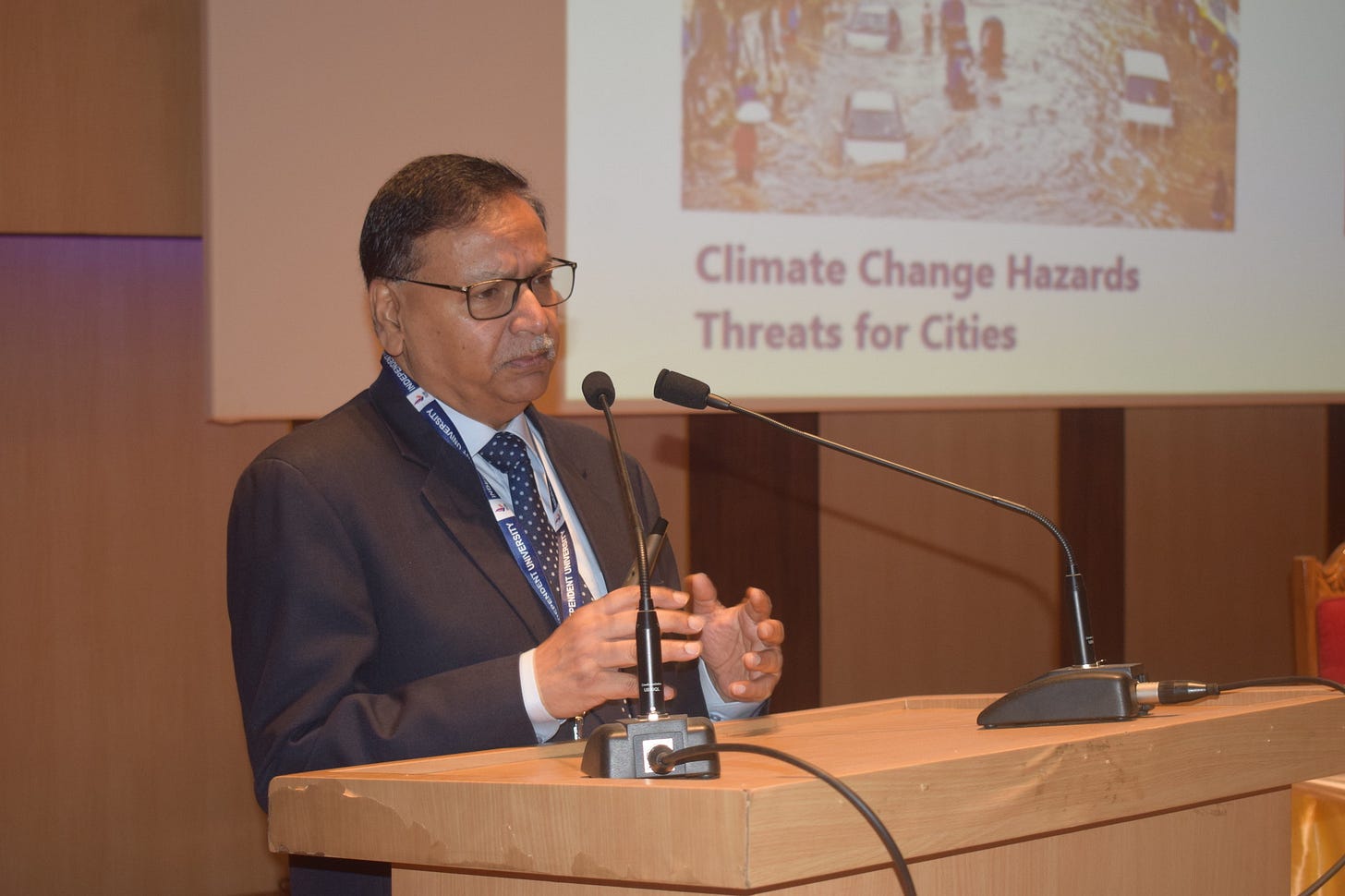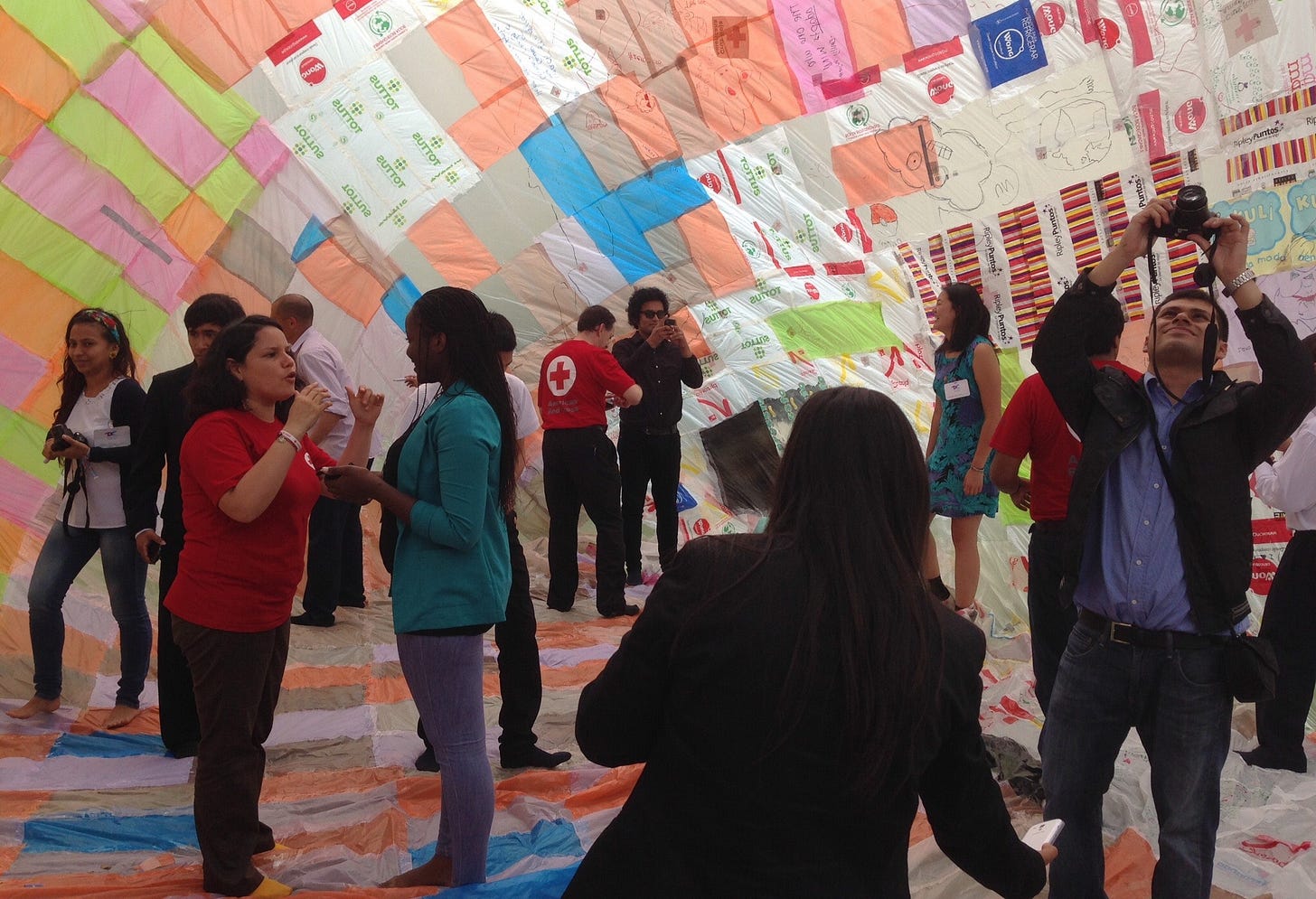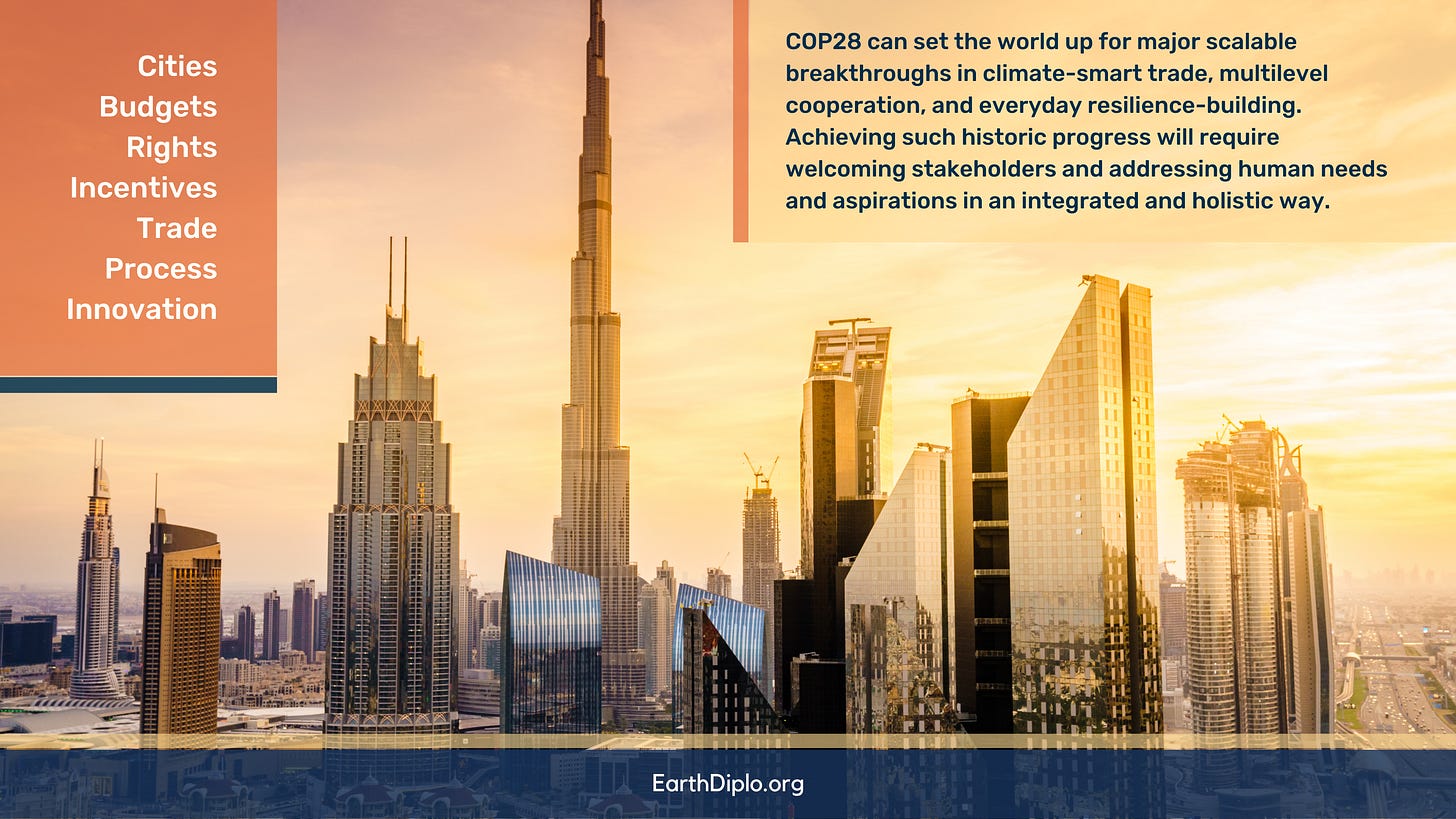The planetary health emergency needs a deeply human response
The legacy of Prof. Saleemul Huq is a global community of people committed to shaping a future of inclusive, sustainable human development.
When I first met Prof. Saleemul Huq, at the COP20 United Nations Climate Change negotiations in Lima in 2014, he was setting an example that we now see many others attempt to follow: He was advising governments, advocating for the best science, representing the needs of the most vulnerable, mentoring colleagues and allies, and welcoming young advocates and researchers into the daunting work of tackling a worsening global crisis.

The result of his steady, unpretentious leadership is a vast global community of bright, collaborative do-gooders working unflinchingly to resolve the climate crisis. When I learned of Saleem's untimely passing, it was this community of cooperative thought-leaders that immediately came to mind.
In 2016, he joined the Founding Advisory Council for the Citizens’ Climate Engagement Network, which became Engage4Climate and gave rise to the Engage4Climate Toolkit. He joined, he told me, because every mind, every community matters, and we will never be smart enough in our solutions unless we listen to and empower stakeholders. The Toolkit is now used by Citizens’ Climate International and others in the Action for Climate Empowerment (climate civics) movement to support open stakeholder meetings where anyone can have a voice on local, national, or international climate policy.
This was just one example of his tireless leadership.
Saleem contributed to the Fifth Assessment Report of the IPCC.
He was a Senior Fellow at the International Institute for Environment and Development (IIED).
He chaired the Expert Advisory Group for the Climate Vulnerable Forum and served as a Senior Adviser on Locally Led Adaptation with Global Centre on Adaptation (GCA).
He led an action track for the United Nations Food Systems Summit and more recently served as a principal in the Transforming Urban and Rural Food Systems (TURFS) initiative.
He organized the Development and Climate Days Conference during the annual climate negotiations, and, of course, he led the International Center for Climate Change and Development.
He was a key leader in the ACT2025 Consortium, which was working to elevate the voices and priorities of vulnerable countries at UN negotiations.
He did all of this while advising the Least Developed Countries, the Climate Vulnerable Forum, civil society networks, and the COP presidency.
In 2022, he was named to Nature’s 10, a prestigious list of the world’s most influential scientists, but he didn’t keep the distance of a VIP or an icon; he stayed engaged and found ways to support others. Because of his generosity, and because he valued every person’s contribution, thousands are already taking his life’s work forward.

Just days before he passed, the 2023 State of the Climate Report, which he co-authored, was published. The report hands to the global community of advocates, diplomats, policy-makers, and humanitarians, an upgraded mission for climate crisis response. The 2023 State of the Climate Report finds:
"By the end of this century, an estimated 3 to 6 billion individuals—approximately one-third to one-half of the global population—might find themselves confined beyond the livable region, encountering severe heat, limited food availability, and elevated mortality rates because of the effects of climate change (Lenton et al. 2023)."
In other words, we may live to see the time when as many as 6 billion people may be trapped in unlivable conditions or forced to migrate, possibly without ever finding an enduring home with safe climate conditions. The world as we know it is facing a threat without any precedent in history, on a scale no one is prepared for.
The report details the worsening climate of adversity and vulnerability across a wide range of metrics:
20 of 35 Earth system vital signs "are now showing record extremes";
This corresponds to “unprecedented pressure on the Earth system;
"there may be serious and underestimated future risks of synchronized harvest failures caused by increased waviness of the jet stream";
"adaptation-focused efforts are needed to improve crop resilience and resistance to heat, drought, and other climate stressors";
"The effects of global warming are progressively more severe, and possibilities such as a worldwide societal breakdown are feasbiel and dangerously underexplored."
We must read this report in the context of the 6th Assessment Report of the Intergovernmental Panel on Climate Change (IPCC), which finds that we will likely breach 1.5ºC of global heating by the year 2040, and that breaching 1.5ºC could lose us critical regulating structures within the climate system. That means every minute of delay adds to the weight of future impacts; we are long past the time when business as usual can be considered a "safe bet" even a few years into the future.
The State of the Climate Report calls out deep dysfunction in the global energy economy, noting that Russia’s illegal invasion of Ukraine…
“has contributed to a massive 107% increase in fossil fuel subsidies from US$531 billion in 2021 to US$1097 billion in 2022 because of rising energy prices.”
The International Monetary Fund has quantified overall taxpayer-funded support for fossil fuels at $7 trillion in 2022, including both direct and indirect incentives. That means a staggering 7.1% of all economic activity—boosted by war profiteering—is being handed over to keep business as usual going, generating more global heating pollution than would otherwise be financially or economically viable.
The report calls for an IPCC special report focusing:
"on the perilous climate feedback loops, tipping points, and—just as a precaution—the possible but less likely scenario of runaway or apocalyptic climate change."
The report also finds that focusing only on climate change mitigation will be insufficient to prevent societal breakdown due to unsustainable stress on the Earth system, noting:
"Massive suffering due to climate change is already here, and we have now exceeded many safe and just Earth system boundaries, imperiling stability and life-support systems (Rockstrom et al. 2023). As we will soon bear witness to failing to meet the Paris agreement's aspirational 1.5ºC goal, the significance of immediately curbing fossil fuel use and preventing every further 0.1ºC increase in future global heating cannot be overstated. Rather than focusing only on carbon reduction and climate change, addressing the underlying issue of ecological overshoot will give us our best shot at surviving these challenges in the long run."
In deference to the conscientious, no-nonsense work of people like Prof. Saleemul Huq, we need to reckon honestly with the underlying meaning of facing an existential threat at planetary scale:
We generally understand that existential means a threat to our existence, or to the existence of things we care about;
An existential threat is also one in which options for avoiding the worst are steadily taken away, and eventually, there is no way out of the emergency.
This worsening degradation of conditions is why part of the global climate crisis response must be robust funding and rapid mobilization of the new Loss and Damage Fund, now being designed through the work of an international Transitional Committee. As Saleem would say, loss and damage funding is not charity; it is both a duty and an urgent practical necessity.
We are seeing everyday human suffering now, and it is getting worse. We are seeing threats to food supplies, nutrition, health, and the stability of nations. We are seeing sudden, radical changes in the Earth system, the shock outcomes of slow-onset changes long underway. Our options are being narrowed, and our laws and institutions remain largely underprepared.
We know we need a paradigm shift across human industrial systems, and across finance and human development. And we know we need the transformation to be cooperative, multilayered, and unwavering. Noting the need to bring evidence and build alliances, Saleem remarked at the COP27 negotiations last year on the role each person can play to make this multilayered cooperative transformation a reality:
“You cannot give up just because things are going bad. You cannot give up; you have to keep on going.”
With one month to go ahead of the COP28 round of United Nations Climate Change negotiations, we need to focus our efforts on making the needed change happen, on time and without delay. We can—if we let our humanity lead us—reshape human systems to thrive in harmony with the Earth system, for the good of all.


